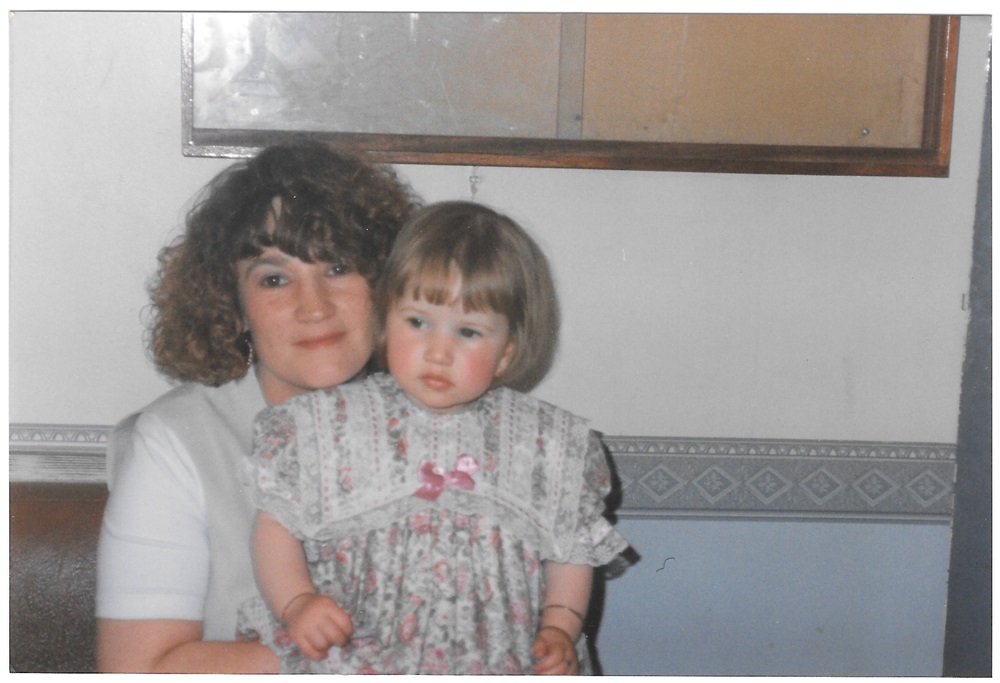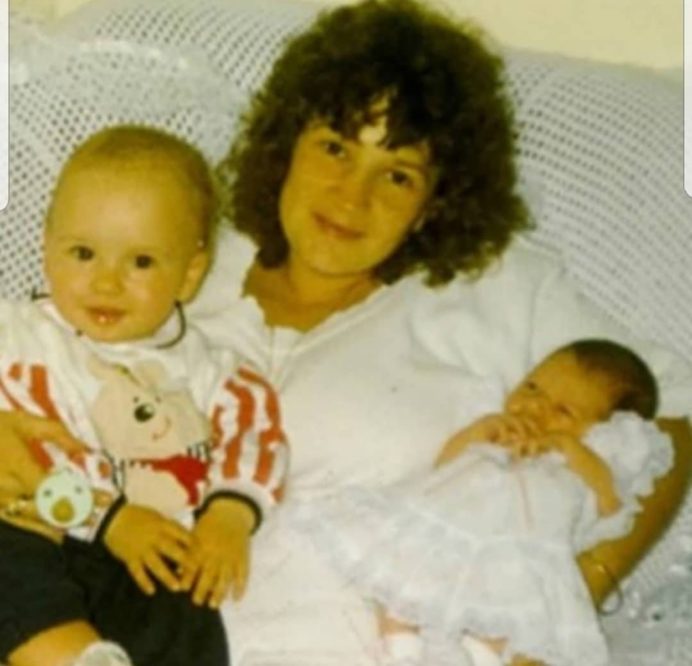New podcast tells how a young family was ruined by a miscarriage of justice

Martin Shipton
The tragic story of a miscarriage of justice victim who became a heroin addict in prison and later died prematurely has been turned into a heartrending BBC podcast series presented by her daughter.
Annette Hewins was convicted of arson with intent to endanger life following an attack on a house in Merthyr Tydfil’s Gurnos estate in 1995 that resulted in the deaths of Diane Jones, 21, and her daughters Shauna, two, and Sarah Jane, one.
Nicole Jacob, now 31, was nearly four years old when her mother, Ms Hewins, was arrested for the crime.
Annette spent nearly two and a half years in prison before having her conviction quashed by the Court of Appeal on the basis that there was no credible evidence against her.
Trauma
In the first episode of the podcast series, Nicole discusses with her four siblings the trauma that has permeated their lives because of the injustice suffered by their mother. She says: “It’s February 2017. A 51-year-old woman, Annette Hewins, is rushed to a south Wales hospital. Once inside, she bangs on the window, jumps on a table and screams out something about a baby being taken away. Then she cries out to the medical staff, ‘Find the real killers’. A relative tells nurses that Annette was a victim of a miscarriage of justice.
“Annette was free from prison, but not its effects, like having become hooked on heroin, leading her to have hallucinations and acts of paranoia. A psychiatrist is summoned to the hospital, but as the time goes by the family becomes increasingly concerned. Within 24 hours Annette would be dead. I know all of this, because I was there. I was the relative providing the information. Annette was my mum. After her death, I’m left with even more questions about her life.”
A coroner’s court decided that Annette died of heart failure, and that there had been reasons for concern about her hospital care, including missed observations and a failure to perform an ECG.
Nicole says: “In my opinion, this poor standard of care was a tragically reoccurring scene in my mum’s life, when institutions meant to protect her failed her. My mum’s death seems the inevitable conclusion of her being wrongly accused of a horrible crime two decades before.
“She had never taken hard drugs before she was sent to prison. She turned to heroin to cope with the mental anguish of being wrongly convicted and separated from her family. Given the harsh way her world had been unjustly destroyed, could you blame her?”
Drug abuse
Discussing her decision to make the podcast series, Nicole says: “My siblings and I have never talked about mum publicly. Her drug abuse became worse after dad had an accident and all of us went into care. Even when we are together today, we are very reluctant to turn our conversations back to those dark days. When I thought about sharing mum’s story, my main hesitation was how my family would react. Did they have the same need as me to find answers?
“I asked my siblings to meet to talk about my going public with our story in a podcast. Three of my siblings agree: my eldest brother Nathan, younger brother Josh and younger sister Sophia. We arranged to watch Josh in his Sunday League football match. Afterwards the four of us gathered to discuss everyone’s feelings. Initially discussing doing a podcast and rethinking the past was a really uneasy thought for all of us because it’s opening up doors of memories and uncomfortable feelings that we don’t like to face.
“We’ve protected ourselves – our whole life we’ve been trying to hold ourselves together and to protect one another in this bubble, just to move forward and to build a better life for ourselves.”
Josh says: “We’ve always had each other and never let anyone else in, so that is the big issue probably for all of us.”

Nathan, the most reluctant about the idea of a podcast, says: “Over the years I’ve struggled with certain things. Obviously I didn’t want to open up them doors again. I didn’t want to go back down the road of remembering. We had good times – our young childhood was good, but it was opening up a lot of doors for me that I’d shut and I wanted to block that stuff out of my life, because there was just so much negativity.”
Sophia says: “I felt and sometimes I do still feel quite hesitant to talk about it and open those doors. But I think the main thing that changed my mind was knowing how much our mum wanted to be heard and how she always wanted her story to be told. Part of it is how I feel quite guilty. I saw her a couple of days before she passed away, and she would always try to talk to me about what happened to her, and her case. I was always like ‘I don’t want to know – I’m too young, I don’t really care’. So I never really got to hear it off her. Everything I’ve heard has been off my siblings. I just find it really difficult to talk about. It is really hard and our lives are not fair. Everything that happened could have been prevented, and she had an awful life.”
Wrongly Accused: The Annette Hewins Story can be heard on BBC Sounds.
Support our Nation today
For the price of a cup of coffee a month you can help us create an independent, not-for-profit, national news service for the people of Wales, by the people of Wales.






